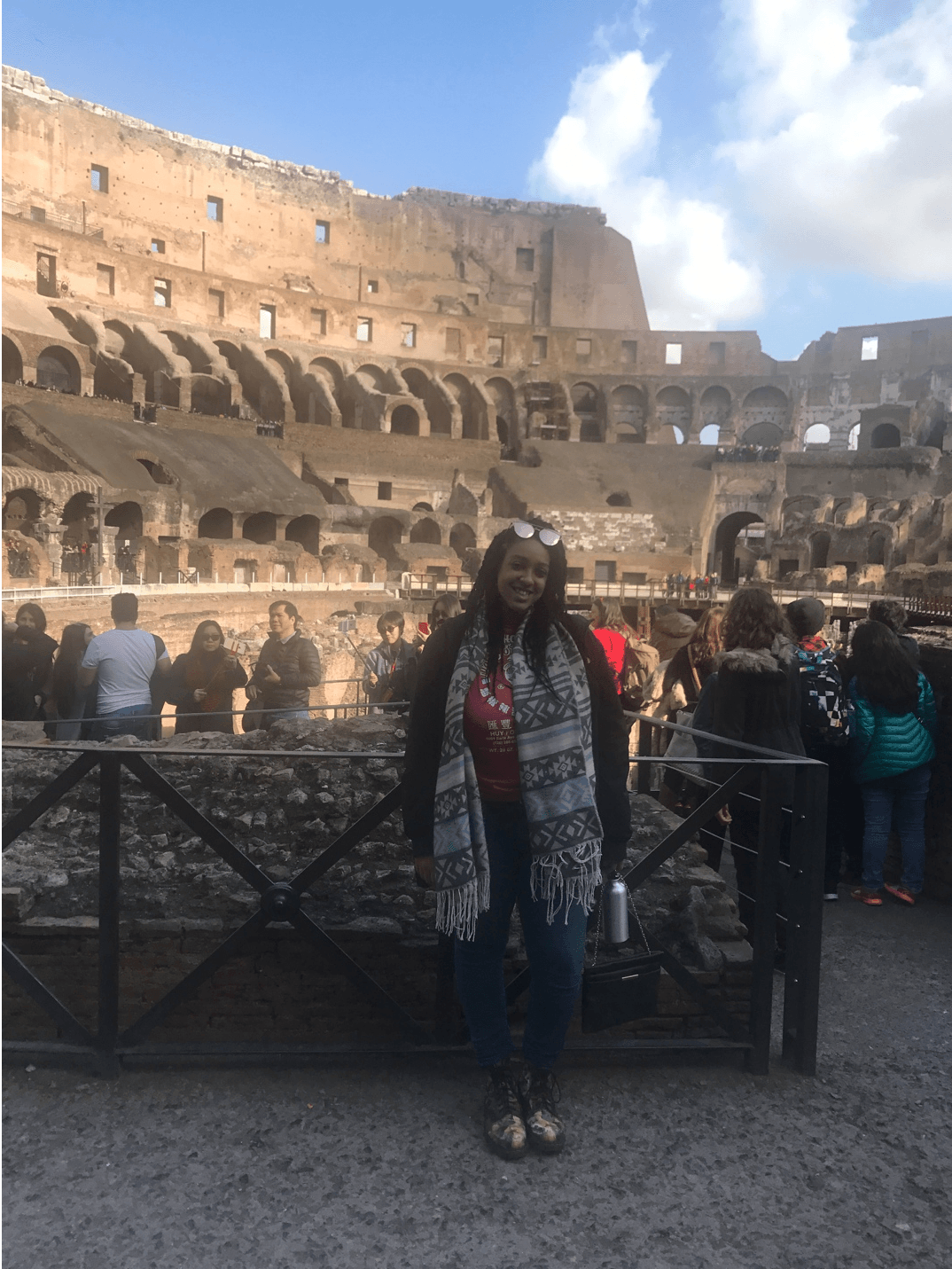One thing that’s amazing about coming from the U.S. to Europe to study is the immense difference in spatial recognition you recognize almost immediately after entering Europe. You’ll notice that the little map on the screen in front of your seat on the plane flies from one country to the next in what seems like 30-60 minutes (yes, that short) and the lines that you see on that map don’t recognize state or provincial borders but rather whole nations. It blows me away that nations can be so tightly packed together and yet so vastly different.

Regions of the U.S. certainly have their own gross differences – the busy pace of the coasts versus the slow lifestyles of the Midwest and South, the drastic differences of English accents across regions (Southern drawl, New England accent, Cali slang, Midwestern accent, etc.), and even the hospitality of the states bathed in sunshine (the South and the West) versus the more distant demeanor of those of us in the North/East. (New Yorkers aren’t mean! We’re just cold and busy!) But ultimately, traveling the U.S. is still exploring American turf. You’re under the same federal jurisdictions, you share the language, and most likely you’ll be at least somewhat familiar with the culture.
Not in Europe. It’s fascinating to live on a continent where driving an hour and a half to the Northeast, I’d be met with Belgian German. An hour after, we encounter Germany. Driving east would lead you to the romantic world of Italy, and even further east and you’re in Eastern Europe, a very different place pretty separated from Western Europe in terms of culture and inclusion in the international realm.
Recently I spent spring break traveling with a bunch of people including my friend from New York, friends from my study abroad program, and some of their friends. We went to Cologne, made a little stop in my hometown in Germany, and then flew to Rome.

Maybe it was just the gritty vibe I got from Cologne (Germany), but this cathedral looks much better filthy, on a snowy day.

I promise, Rome’s Coliseum is much more impressive in person. Out of maybe 500 pictures, only two of them really dented the vast and magnificent beauty of these ruins.
It’s fair to say one of the things all of us international students studying abroad in Europe look forward to is traveling. I mean, why wouldn’t we? We were all bold enough to leave our homes, probably for a place with a new language, and a very different culture… so why not take it further? This blog post is based solely on my personal travel experiences, and I hope the advice in it is helpful to those of you who are already travelers or look forward to studying abroad. Of all the traveling I’ve done, traveling as a student abroad has been some of the most enlightening and interesting experiences I’ve had, and along the way I’ve picked up many tips and tricks that I hope will make traveling a breeze.
10 Do’s and Don’ts of Studying Abroad:
- Do plan ahead. See what your cheapest travel options are, and compare prices between companies. Goeuro.com is great for comparisons, but make sure to also look into local car-sharing services (like BlaBlaCar here in France) as well as cheap bus options (like Flixbus, a personal favorite) and airlines (Ryanair is amazing in Europe).
- Don’t go crazy trying to plan all the details ahead of time. Give yourself extra wiggle room while traveling. You’ll never know when you (and maybe your friends) want to stop for something to eat. You also don’t want to try to buy tickets for everything you’d like to see in advance because it could be that you all decide to wander around instead of sticking to a schedule, and you don’t want to be anyone’s mom pressing them for time.
- Do spend some time alone. I know you’ll be excited to travel with old or new friends, and you might feel safer in a group or with friends, but trust me – this will be necessary to balance your moods and process all the new things you’ll be encountering. I find that most people who travel together (especially new friends) sometimes squabble over small details with people they really like, even over really small things! Most people can get over that, but I find that spending time alone like having breakfast by yourself at the hostel or taking a safe walk in the middle of a large public park in the afternoon can clear your mind tremendously and take the edge off being surrounded by people with their own ideas and agendas the entire time you’re abroad. Make sure to remember to prioritize some self-love and self-care.
- DON’T PACK EXCESSIVELY. I cannot stress this point enough, and it really should be the first point. For cheap flights in Europe, you pay for everything, including checked luggage. That means as a financially-strained student, your best bet is a carry-on full of re-wearable (and comfortable) clothing, one pair of shoes, only the essential toiletries, and 100 mL bottles of any liquids you may need. Save room in your luggage for souvenirs and things to bring back. You’ll definitely thank yourself later! Over-packing isn’t just impractical and annoying, but can actually hurt your experience. For example, in Rome, we found ourselves walking for hours every day because there happened to be a taxi strike! Now, please don’t let this happen to you. Me and my good friend were miserable walking around Rome, trying to find a cab, holding our huge carry-ons. Just remember, anything you might find yourself needing you can buy when you get there. Anything you can’t is probably not a part of this society and you won’t need it to survive. Take the leap of faith and enjoy the raw experience for what it is.
- Do try and befriend locals! The best way to get to a know a place is through its people. Not only will they be able to help you with the practicalities of their home but they will have the best insight on what to see, do, and eat. Plus, you may end up with a new life-long friend.
- Don’t eat at super touristy places, at least not all the time. I get it, you’re hungry. You’ve been walking all day and you see a gimmick food place really near to the last tourist destination you went to. If you can, try to look up places with good ratings or get recommendations ahead of time. I know this is a little bit more work, but it’s always worth it. Those of us coming from big cities know very well that tourist areas are over-priced, and often offer the worst quality of foods that the city has to offer. At first, I thought Rome’s food was waaaay overrated. I was disappointed with the Italian culinary experience I had been fantasizing about for years. It wasn’t until my Roman friends reached out to me on Facebook and gave me recommendations, or when I started looking up popular restaurants on Google, that I found myself in food wonderland. However, keep in mind that if you need something quick and small to keep you going, you don’t have to avoid all the tourist spots forever. Just try not to eat there for all three meals, all the days you’re there!

Pizzeria Bonci in Roma. We made friends with William, pictured behind the counter, a local from Astoria, Queens now living in Italy. He told us that he plans to open restaurants in Chicago this upcoming year and New York the next!
- Do something every day. There’s no point in wasting time, money, and energy traveling to a new spot just to hang out in the Airbnb, hostel, or hotel. If your friends are feeling lazy, suggest finding a new eatery or a park where you all can lounge. If no one wants to leave, go do something yourself. Being somewhere new is exciting, but if you haven’t been anywhere, what is exciting except for the actual transit?
- Don’t carry tons of cash at once. You might think that cash is practical, in case of an emergency and when you’re going out. You’re not wrong. In this case, I support carrying some cash on you at all times (I myself like to keep 30 euros on hand at all times – enough for a taxi ride home in an emergency). But some folks carry too much, and there are a couple of reasons I advise you all not to do this. The first is that if something happens (which I doubt it will!), you don’t want to lose all the money you have. The second is that carrying cash encourages you to spend more (at least according to most people), and if you’re traveling on a student’s budget you might not necessarily want to do that. As a bonus, most places will accept international bank cards. Stay safe, stay practical, stay financially responsible.
- Do try to supplement your education with some outside learning. I know, I know. I can practically hear the nerd jokes now. But think about it. Schools and classrooms prepare you practically all of your life to learn about the world in practical ways. For me, my high school Greek, Roman, and world history lessons flooded back as I explored ancient sites in Rome we used to discuss. Seeing these places brought real perspective to some of these lessons, and let me imagine history in a deeper context. Learning about different peoples’ culture allows you to critique the world of politics, pop culture, and social norms from broad viewpoints. Understanding what is happening in places you visit and what they’ve overcome as a state or a city or province is critical to your experience there, and the world we live in that is constantly changing around us. Hearing the German perspective on American politics, after beginning to understand the French perspective, helps me understand our own impact around the world as well as how to embrace the differences in our cultures. Some folks in the world never get to experience the intensity of formal education that we as college students get to, and learning practically is how they become informed adults. Even when we finish our education, we never stop learning, so start learning practically now. You will become a better, well-rounded person, and no one can ever fault you for your openness to learn and your expanding depth of knowledge.
- Don’t forget to LIVE YOUR LIFE. Breathe, and take it all in. Try new things, especially things you wouldn’t back home. Eat something your friends stare at you slack-jawed for trying. Attempt to speak the languages in the first words or sentences you might’ve picked up. Learn the culture by embracing it. Prepare yourself to be changed by your experiences. Try to leave all your preconceptions at the door. If you open up to the world, it’ll open up for you and you might just find many new things that shape who you’ll become.

The Trevi Fountain in Rome gave me such good memories and high hopes for the rest of my adventures. Sitting and thinking in front of those gorgeous multi-hued blue waters underneath incredible and ancient art really brought me back to how lucky I am to have this opportunity.



